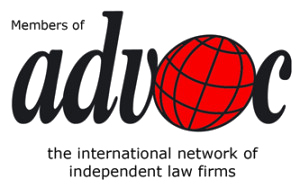1. INTRODUCTION
On 29 December 2000, the Royal Government of Cambodia issued Sub-Decree No. 103 to define the formality and the procedure for Civil Registration affairs in the Kingdom of Cambodia. The Sub-Decree has, until recently, been the primary legislation for civil status registration and the main source for registrars to use for civil registration in the Kingdom.
Responding to the population growth and the need for population management, the Law on Civil Registration, Vital Statistics and Identification (“LCRVSI”) was promulgated on 01 July 2023. This law sets out the rules and procedures relating to civil registration, residence registration, vital statistics, personal identification registration and population registry management, and this law applies to all persons living in territories of the Kingdom of Cambodia in addition to Cambodians living abroad. Whilst this law provides the framework, it is anticipated that many other regulations related to formality and procedure will be issued by the competent ministries and institution for effective implementation.
2. TYPES OF CIVIL REGISTRATION
The three (03) vital events that need to be registered are live birth, death and marriage (Art. 4 of LCRVSI).
* Birth Registration and Certificate
Every live birth must be informed to and registered at the commune/sangkat. An informant shall submit an application for live birth registration within 30 days from the birth date of the child (Art. 17, 28 and 19 of LCRVSI).
After the live birth registration, the competent civil registrar shall issue an original copy of the birth certificate to the informant free of charge (Art. 27 of LCRVSI).
Live Birth registration for the child of foreign parents living in Cambodia shall be done in the same manner as mentioned above (Art. 37 of LCRVSI).
* Death Registration and Certificate
Every death must be informed to and registered at the commune/sangkat. An informant shall submit an application for death registration within 15 days from the date of death (Art. 41, 42 and 43 of LCRVSI).
After the death registration, the civil registrar shall issue an original copy of the death certificate to the informer free of charge (Art. 55 of LCRVSI).
For the death of foreigner in Cambodia, the death registration process is the same as mentioned above, however the civil registrar shall issue the death certificate as soon as possible for enable cross-border transportation of the dead body and cremation or burial (Art. 59 of LCRVSI).
* Marriage Registration and Certificate
Marriage between Cambodians in Cambodia
A marriage is legal only if the man and woman register their marriage in front of a civil registrar at the commune/sangkat where the marriage application was received (Art. 70 of LCRVSI).
After the marriage registration, the competent civil registrar shall issue an original copy of the marriage certificate to the spouses free of charge (Art. 71 of LCRVSI).
* Marriage between Cambodians outside Cambodia
A marriage between a Cambodian man and a Cambodian woman living abroad which has been done in accordance with the form set out by the law where the marriage takes place shall be recognized and registered in Cambodia if that marriage is not contrary to legal provisions of Cambodia. This marriage can be registered in front of the competent consular official of Cambodia abroad where the marriage takes place (i.e. the Cambodian embassy of that nation) or can be registered at commune/sangkat of the spouses by presenting a marriage certificate from the foreign country and other necessary information determined by the Prakas issued by the Minister of Interior.
After the marriage registration, the civil registrar to the consular official of Cambodia or a competent civil registrar shall issue an original copy of the marriage certificate to the spouses (Art. 75 of LCRVSI).
* Marriage between a Cambodian and a Foreigner outside Cambodia
Recognition and registration of marriage between a Cambodian and a foreigner outside Cambodia is conducted in the same manner as a marriage between a Cambodian man and a Cambodian woman as mentioned above.
In present practice, if the couple have a marriage certificate from abroard and would like to register their marriage in Cambodia, they should prepare their application together with marriage certificate and other supporting documents including, but not limited to; a criminal record check, passport copy of the foreigner etc. and submit them to the General Department of Identification. The national civil registrar under the General Department of Identification will issue a decision that the couple can take in order to register their marriage in front of the Commune/Sangkat civil registrar of the residence of the Cambodian party.
* Marriage between Foreigners in Cambodia
A marriage between a Cambodian and a foreigner living in Cambodia shall be done in accordance with Cambodian laws. Form, formality and procedure for marriage between Cambodian and foreigner shall be determined by a Sub-Decree (Art. 76 of LCRVSI).
As of today, the formulation of a Sub-Decree as mentioned in Art. 76 of LCSCCSI has not yet finalized the procedure of marriage between a Cambodian and a Foreigner, thus the provisions stated in the Sub-Decree 183 dated on 03 November 2008 should still be followed.
* Marriage between Foreigners in Cambodia
A foreigner legally living in Cambodia may marry another foreigner legally living in Cambodia in accordance with Cambodian laws. This marriage can be registered in Khmer language accompanied by Latin letters (Art. 77 of LCRVSI).
3. RESIDENCE AND IDENTIFICATION
The Chief of the Commune Administrative Police Post is a residence registrar (Art. 107 of LCRVSI). Residence registration can be done at the Commune Administrative Police Post where the residence of the person in question is located in, or other places as determined by legal documents issued by the Ministry of Interior (Art. 112).
The persons responsible for and are able to request residence registration are as follows: each representative of the residence, the landlord, the tenant or a representative in the case that the house is subject to a lease, the director of the institution or the manager or representative in the case of concentrated residence, an actual resident and other persons or the director of institution or the manager or representative authorized by this law or other laws.
After residence registration, the residence registrar shall issue an original copy of residence certificate to a person who has requested the residence registration (Art. 114).
Identification Registration and Card.
The Cambodian Identification Card is an official document for certifying the identity of each person who is a Cambodian national, and it shall not be allowed to be transferred from person to person nor used create any security right (Art. 129 of LCRVSI).
To implement this article especially on the form, identity, information, validity and determination of age to provide Cambodian Identification Card, the law refers to a Sub-Decree. Therefore, while current practice allows a person to request a Cambodian Identification Card at the age of fifteen (15) years old, the new Sub-Decree will clarify the age requirements upon its issuance.
According to Art. 131 of LCRVSI, a person with Cambodian nationality whose age complies with above Sub-Decree can request for Cambodian Identification Card registration. A person with Cambodian nationality can request for Cambodian Identification Card registration only once. The card can be renewed in case of damage, loss, or expiry or if the recorded information must be corrected (Art. 131).
After the registration of Cambodian Identification Card, the registrar shall provide a Cambodian Identification Card to the person in question (Art. 132).
For those who have received Cambodian nationality, but the civil registration has not yet been completed, they may request to correct their identity data on the Cambodian Identification Card in accordance with the Royal Decree on Naturalization (Art. 133).
4. CONCLUSION
1) Law on Civil Registration, Vital Statistics and Identification was promulgated on 01 July 2023 and provides very comprehensive conditions and universal registration for civil registration and identification in Cambodia that comply with the United Nation Recommendations on Civil Registration and Vital Statistics. The law will be implemented one year after the promulgation, other than Art. 179, 180 and 180 which shall be implemented in accordance with the future Sub-Decrees.
2) There are several points of law and formality which are not yet clear, as the law refers to not-yet-issued Sub-Decrees and Prakas of the Ministry of Interior. Therefore, to effectively implement this law, the issuances of Sub-Decrees and Prakas or Inter-Ministerial Prakas clarifying the requirements, public service fee, form, formality and procedure are required.
3) The law does, however, undoubtedly improve the civil registration and identification process and should result in greater clarity, quality of service, lower payments, and ease of access.
The information provided here is for information purposes only and is not intended to constitute legal advice. Legal advice should be obtained from qualified legal counsel for all specific situations. For more details or any question related to the Civil Registration and Identification, please contact our professionals via [email protected].







